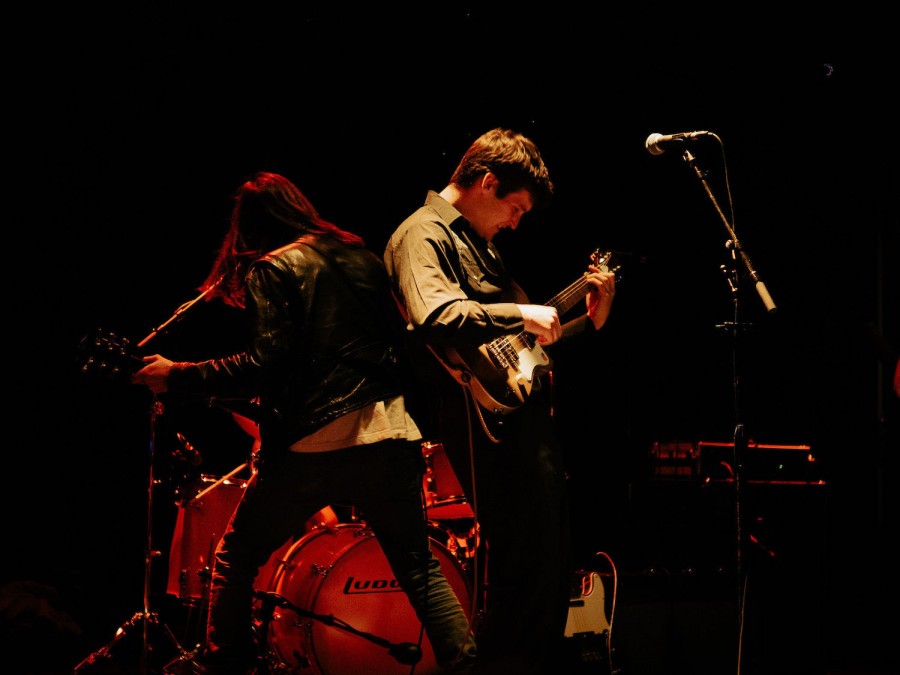j solomon on ‘Sleeping in the Garden’ and the disorientation of growing up
“Sleeping in the Garden” candidly communicates j solomon’s disjointed experience growing up in his bucolic childhood home and later moving to an apartment in the city.
April 3, 2023
j solomon’s “Sleeping in the Garden” — a reflection on his rural childhood home in Bucks County, Pennsylvania, and his journey to adulthood in New York City — depicts the inevitable feeling of disorientation when leaving your hometown.
“The thing that ties all the signs together is when they were written in my life,” j solomon, also known as Jesse Moldovsky, told WSN. “Things change when you move from where you grew up and the people around you grow up as well.”
“Sleeping in the Garden” is an EP composed of six tracks, some of which have been in the works for almost five years. The first song, “Mona Lisa” starts the EP bluntly, presenting hard-learned lessons about the grating reality of capitalism. Presented in a punchy and upbeat fashion, the song’s catchy chorus explores how costly it can be to make it in New York City. “But you know that it would take some money to make more money / You gotta get some, honey, if you wanna get outta here,” he sings.
Taking a turn from city life, Moldovsky narrates his story of growing up and leaving home in “Gossamer.” The song melodically depicts the confusing split between adolescence and adulthood.
Made up of plucked guitar notes and aching vocals, “Gossamer” uses Moldovsky’s soft-spoken intensity to convey an unexplained anger at returning to a place that is all too familiar: “Despite the memories I’ve really learned to hate it here / In spite of every lesson learned in my young life.” “Gossamer” flawlessly captures a feeling of nostalgia, rendering it universally comprehensible.
The title track, “Sleeping in the Garden,” contains quiet, whispered words layered above a plucked guitar background. Contrasting this, the bridge gains noise and confusion with overlapping tones and scrambling guitars. After the auditory peak, the song quickly cuts to a careful, clean guitar riff which plays both long enough for the listener to almost overcome the noisy confusion of the bridge and brief enough to leave them just a step short.
The symbol of the garden in the track’s title represents Moldovsky’s childhood home, seeming to reveal his everlasting yearning for it. “Sleeping in the Garden” gives listeners insight into his confrontation with the fact that he will never again experience the adolescent innocence that his childhood home protected within its walls: “And I dreamt that we were sleeping in the garden.”
While each song could exist independently and seem to belong to its own project, the careful ordering of the tracks emphasizes the theme of moving from place to place and emerging as an adult. Each song deeply communicates the heartache of growing up — relatable to listeners, but also a record of Moldovsky’s own experiences.
“When I wrote ‘Mona Lisa’ I was sitting in a dark apartment in New York City, all angry and pent up,” Moldovsky said. “[For] ‘Gossamer,’ I was probably in my childhood bedroom.”
Juxtaposing these environments while working with time, the EP aptly covers a raw coming-of-age story that is applicable to many audiences. In the interview, Moldovsky reflected on what he would say to his 18-year-old self just beginning the work on this project.
“It’s going to take a lot longer than you think for this to come out, and it’s OK, because if I released this a year ago, I don’t think it would have been as good,” he said. “See the long game — it’s worth it.”
Contact Katherine Manatos at [email protected].























































































































































